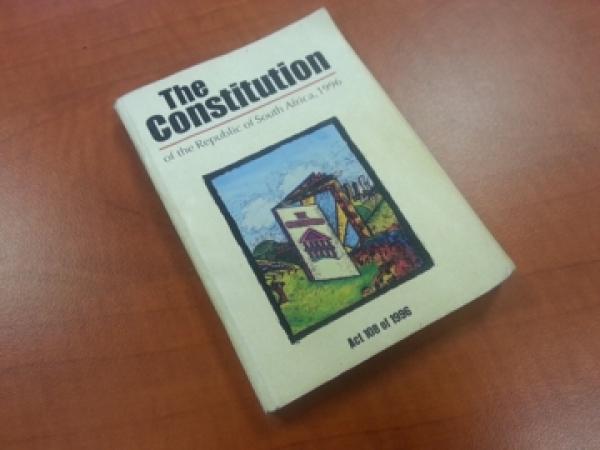

The Constitution of South Africa.
12 September 2012
South Africa has one of the most progressive constitutions in the world. The Constitution states that everyone has the right to basic healthcare, education and shelter, but upon reading further, there are limitations placed on these rights such as the state acting “within its available resources”.
Now to justify the infringement of a constitutional right, the infringement should be acceptable within the limitation clause, also found in the Constitution.
The landmark case of S v Makwanyane in 1995 stated that the right to life is the only right that cannot be justifiably infringed. According to our state laws however, during a state of warfare, if convicted of treason, the perpetrators can be given the death sentence. This is evidently the first limitation to the right to life. The second limitation would be illustrated by the Marikana massacre.
According to the various media reports (which is all we can rely on since a Commission of Inquiry has not yet issued facts or findings), the factor triggering the violence was the firing of a pistol by one of the strikers. The police then in turn fired live ammunition at the protestors leading to the death of an alleged 34 protesters.
Now the question that most citizens are asking is why have the members of the police responsible not been charged yet?
Section 199(5) of the Constitution states that police “must act, and must teach and require their members to act, in accordance with the Constitution and the law”. The Constitution then protects the right to life of everyone (including every criminal suspect or illegal protestor). The police acted contra to this mandate in the Marikana killings. Three defences to justify their actions have been made.
The first is that their action was in reaction to two officers being killed. This argument is illogical and unacceptable because it would insinuate that the strikers forfeited their right to life because two police officers were killed by unidentified individuals. Second, the Criminal Procedure Act and the Constitution declares every suspect innocent until proven guilty by a competent court. This justification would mean that without a competent trial officers can make a judicial decision (of who is guilty of killing their colleagues), that would lead to them imposing a sanction or judgement and punishment—the death penalty in this case.
The second reason given was that the officers were acting in self-defence. Now according to the principle of this defence as authorised by the Police Services Act, a police officer is authorised to use force but this is limited to he or she using minimum force that is reasonable in the circumstances.
Furthermore as the general principles of Criminal Law state, to justifiably use self-defence, the threat must be immediate and secondly the force used must be reasonable to ward off the threat and not be excessive.
Now judging from the reported facts neither of these qualifications were adhered to. That 34 people lost their lives due to one unknown individual allegedly firing a pistol seems irrational, drastic and exceedingly excessive. That the police used semi- automatic rifles on protestors due to one protestor having a pistol is similar to the popular saying of “bringing a gun to a snowball fight”.
Third, the police claim to be protected by the Police Services Act which permits them to use force but again this reasoning is flawed and illogical considering that section 13 of the Police Services Act, states that members of the SAPS must act subject to the Constitution (as with any other Act that is promulgated in South Africa) and with due regard to the fundamental rights of every person. The right to life is the most fundamental of all rights and therefore when infringing it, such infringement must adhere to all the necessary statutes that have been tested and passed against section 36 of the Constitution which is the Limitation Clause.
This point is intertwined with the self-defence argument and to hide behind the Police Services Act, the police officers involved or rather the individual that authorized the killings, must satisfy all the requirements mentioned in the Act. As we have seen above, these requirements do not appear to have been satisfied.
Now the failure of the NPA to charge the responsible officers with murder and for acting against the Police Services Act leaves only one inference: that the infringing of the right to life can be justified if committed by a police officer even if acting in contravention of the qualifications that are stated in the Police services Act.
This inference would be dangerous and consequently lead to blurring the line between officers acting as required or abusing their power. This would then mislead the country into believing utterances made by political figures Bheki Cele, Susan Shabangu and Nathi Mthetwa condoning “shooting to kill” while we live in a constitutional and democratic society.
Furthermore failure to act would leads to the conclusion that the right to life no longer holds as much importance found in the Makwanyane Constitutional Court case, at least not to the NPA. The consequences of this are alarming.
Zamandaba Sibiya is a final year law student at the University of Kwazulu-Natal Howard College.